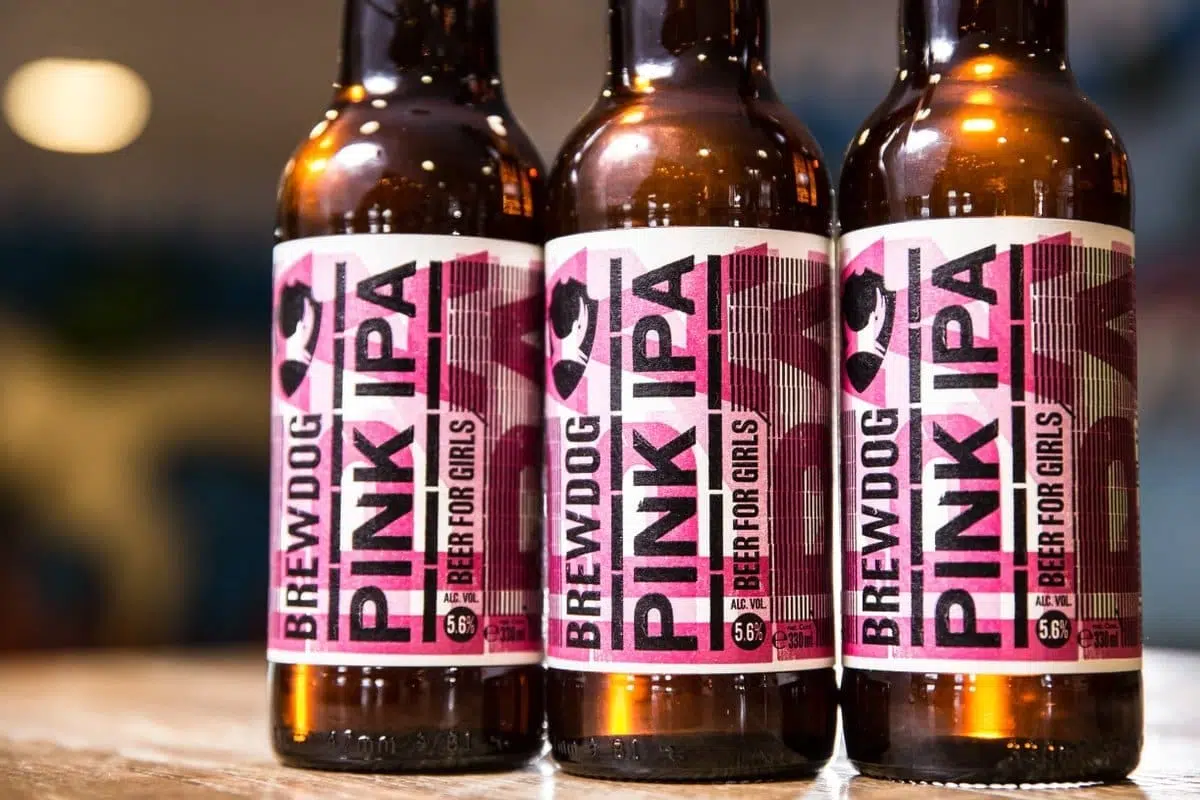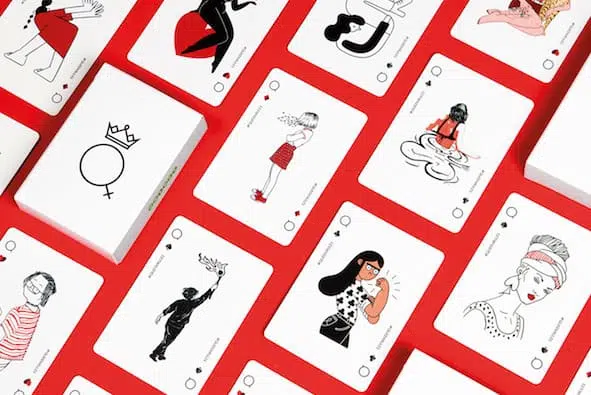The distinctive way brands have chosen to mark International Women’s Day in many ways demonstrates how far we have come. However on the centenary of women’s suffrage, it can highlight just how far we have left to travel.
Here’s our selection of the four most distinctive International Women’s Day campaigns.
Penguin Waterstones pop-up shop
Penguin has launched a pop-up shop stocked solely with female authors in London, from the 5th – 9th March in partnership with Waterstone’s. The shop is a celebration of “the way that women contribute, often under the radar, to every facet of society” and recognises female figures who have “made a difference or fought for change” in areas like politics, activism, writing, art, science, sports and culture, among others.
Penguin’s pop-up is perfectly pitched, shining the spotlight on female thinkers and activists, giving women’s voices a platform and inspiring the next generation.
Brewdog goes pink
On the other side of the spectrum, Brewdog has launched a pink beer for girls.

Although this was intended to be tongue in cheek, for some, highlighting the issues surrounding stereotyping in marketing by stereotyping is misjudged move. The reaction online and in the headlines shows that the irony wasn’t communicated effectively. Also, they’re drawing attention to something we’re all well aware of. Doritos anybody?
Ok, it’s not all disappointment. To highlight the gender pay gap of 18.4% (for median earnings), they’re also offering women a 20% discount on the pink beer and donating 20% of profits to women’s charities. It’s unfortunate that the pink label has dominated the conversation and overshadowed this tangible contribution. It goes to show the power of visuals to dominate the overall impression of a campaign or product.
FCB Inferno topples the King
FCB Inferno, the design agency behind This Girl Can, have re-imagined playing cards, and created Queens Rules. And, in this game Queen always trump King.

The project was born from a conversation between Art Director Ben Edwards and his 5-year old daughter. During a game, she asked “So, what’s better? King or Queen?” Edwards knew the answer,
“We all know the answer: in cards, a king is always better than a queen. And although I obviously knew this, I didn’t like it. And it wasn’t something I wanted to teach my daughter. She should grow up believing she can be whatever she wants to be. In a world without gender inequality, pay gaps or glass ceiling. And this starts with the games we play at home.”
This moment sparked an entire campaign and a Queens Rules tournament in London, Malta and Stockholm – a partnership with the UN’s He for She is also in the works.
The cards themselves are the work of 16 female artists from around the world, who were all given the brief, “what does a modern day Queen look like to you?” Giving them the creative freedom to design what they wanted. The result is 4 decks with an array of strong, diverse, beautiful images displaying an empowering panpoly of modern day femininity.
This campaign succeeds where Brewdog failed, and calls into question those unthinking sexist visual cues we accept without question everyday. As Edwards puts it,
“Why is the Oscar statue a man? How come the green man’s a man? And surely Queens love burgers too? Yes, it’s the horrific cases of sexism, discrimination and assault that make the headlines – but unconscious gender bias, the stuff we don’t always notice, surely that can be just as damaging.”
Smirnoff Equalizer
This is the latest installment of Smirnoff’s “Equalizing music” campaign. The campaign aims to draw attention to inequality in the music industry. A recent study from the Anneburg Inclusion Initiative that analysed 600 popular songs from 2012-2017, women only represented a mere 22.4% of all artists and a tiny 12.3% of all songwriters.
In 2016, Smirnoff kicked off with a documentary starring a New York female DJ collective and booking agency Discwoman. Then last International Woman’s Day, announced plans to double the number of female headliners at festivals by 2020.
This year the brand is partnering with Spotify to support women musicians in all genres. Using the Smirnoff Equalizer Spotify listeners can get a breakdown of the number of male v. female artists they have listened to in the past six months. If your preferences are predominately masculine, the Equalizer provides an “equalized” playlist tailored for their music tastes.
Smirnoff’s global senior brand manager, Neil Shah explains,
“This is really about actually empowering people to actually understand how their behaviors are subject to gender biases, and allows them to address those behaviors in a way that is natural to them.” (quoted in the Drum’s Marketing Changemakers: Smirnoff rolls out ‘Equalizer’ tool on Spotify to promote women artists)
The equalizer draws attention to a potential lack of female voices in your go-to-play list and gives you the tools to change it all-in-one.
Final thoughts…
These campaigns demonstrate the importance of gender issues in marketing and the potential pitfalls surrounding any gender-themed campaign. Where Brewdog failed and the others succeeded is by providing their women with a platform, by taking action. They listened to what their audience actually wants (clue: it’s not pink labels) and took the focus off of selling products and onto the real issues affecting real women.
If you’re interested in having one of our specialists provide a comment for your publication, or if you would like us to create a bespoke opinion piece, we would love to speak with you. Contact Mackman on 01787 388038 or email customerservice@mackmangroup.co.uk.
